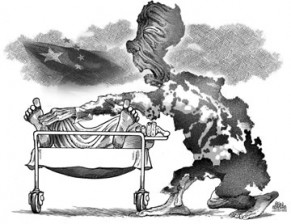Pinoy One

We recall that tidbit of information in light of yesterday’s execution of a 35-year-old Filipino drug courier. His name is reduced to the label given by the Department of Foreign Affairs (DFA): Pinoy One.
Tthe ID bore an eerie echo to the President’s nickname.
The execution in away served as a reminder to the DFA and other agencies to work harder to ensure the safety of overseas Filipinos, specifically those traveling abroad.
Being a communist regime, China would certainly want to impose draconian measures to crack down on crime as an example to its citizens.
In the Philippines, vigilant human rights groups and a recent Palace decision to set aside the death penalty in favor of life imprisonment has made it difficult for law enforcers to strike fear in the hearts of drug dealers.
Article continues after this advertisementThe prosecution of a Kenyan woman arrested last September in the Mactan International Airport with shabu in her suitcase is an example.
Article continues after this advertisementWhile one feels sympathy for the family of the executed drug mule, there were also expressions of disappointment and even support for the execution from Filipinos.
In one radio program, callers said that while the national government should do everything to rescue Filipinos convicted of crimes punishable by death, it should not extend the same favor to drug mules since this would only encourage syndicates to use them more frequently.
The DFA should compile a list of Filipinos overseas who were convicted of heinous crimes or are undergoing trial for such offenses.
While it is disturbing and even humiliating for the national government to beg on bended knees for foreign governments to spare the lives of its constituents, the reality is that drug trafficking is a crime against humanity itself.
The cases hammer home the need to resolve poverty at the grassroots level.
For so long as Filipinos are desperate enough to find work that is illegal and dangerous, they will continue to do so. They’re not alone.
The travails of a young Kenyan mother, Aisha Atieno Ogutu, in a Lapu-Lapu City jail, are testament to that same kind of despair.
May the Aquino administration find the will and support of the people in saving overseas Filipinos from running afoul of the law.
Nobody wants to wait for Pinoy Two.